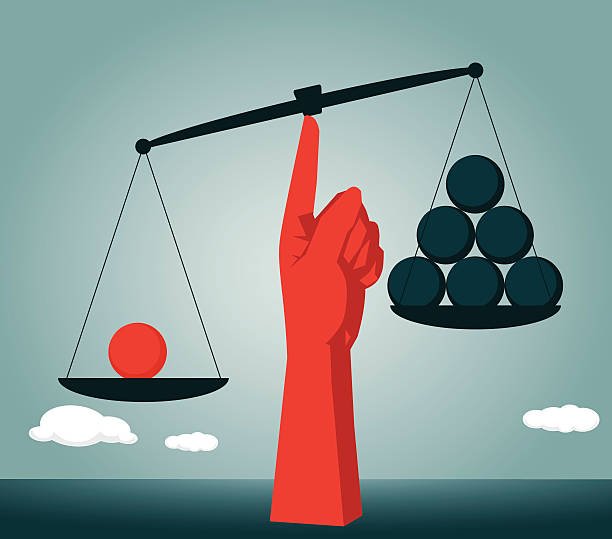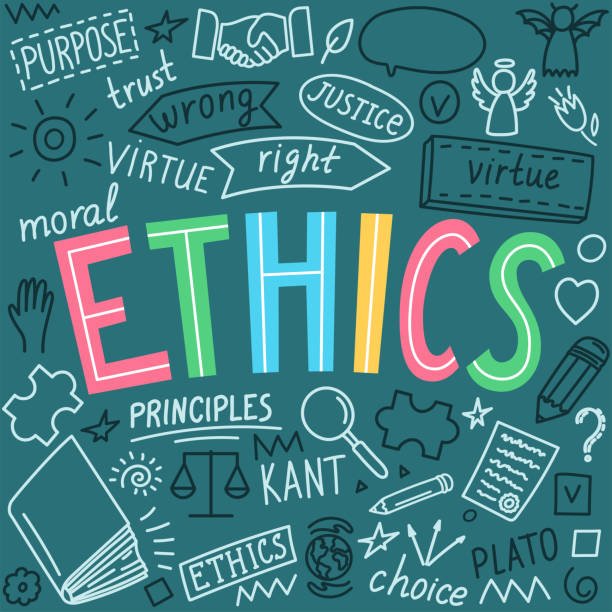Ethics : Notes, Common Exam Questions and Answers Guide, Online Quizzes and Activities for Business Studies Grade 12 Revision Studies, from Ethics and Professionalism section. This content is under Term 1 as per the CAPS Curriculum.
On this page, grade 12 students learn and study for revision using REAL EXAM questions based on Ethics topic, using activities and engaging quizzes. Every South African grade 12 learner who wants to pass Business Studies subject with a distinction, needs to go through the valuable study resources on this page.
Ethics Business Studies Grade 12
Ethics is a branch of philosophy that deals with moral principles and values, and how they influence human behavior. Ethics is concerned with questions of right and wrong, good and bad, and what it means to lead a good life. In the context of business, ethics refers to the moral principles and values that guide decision-making and behavior in the workplace.
Definition
Ethics can be defined as a set of moral principles and values that guide human behavior. Ethics is concerned with questions of right and wrong, good and bad, and what it means to lead a good life. In the context of business, ethics refers to the moral principles and values that guide decision-making and behavior in the workplace.
History
The study of ethics dates back to ancient Greece, where philosophers such as Plato and Aristotle explored questions of morality and virtue. In the centuries that followed, ethics became an important area of study in religion, philosophy, and law. Today, ethics is a widely studied field that is relevant to many areas of human life, including business.
Video: Business Ethics | The Impact of Ethics on Business
Business Ethics
Business ethics refers to the moral principles and values that guide decision-making and behavior in the workplace. Business ethics is concerned with questions of right and wrong, and how these principles can be applied in the context of business. Business ethics is important because it helps to promote trust, transparency, and accountability in business relationships, and can help to prevent unethical behavior such as fraud, corruption, and exploitation.
Examples of business ethics include honesty, fairness, respect, and responsibility. Business leaders and managers are expected to uphold these principles and to ensure that their actions are consistent with ethical standards. Business ethics also involves considering the impact of business decisions on stakeholders, including employees, customers, suppliers, and the wider community.
Ethics is a branch of philosophy concerned with moral principles and values that guide human behavior. In the context of business, ethics refers to the moral principles and values that guide decision-making and behavior in the workplace. Business ethics is important because it helps to promote trust, transparency, and accountability in business relationships, and can help to prevent unethical behavior.
Ethical Behaviour
Ethical behavior in business refers to actions that are consistent with moral principles and values. Ethical behavior is important in business for several reasons, including:
- Building Trust: Ethical behavior can help build trust between businesses and their stakeholders. When businesses act ethically, they are seen as trustworthy and reliable, which can lead to better relationships with customers, employees, investors, and the wider community.
- Promoting Fairness: Ethical behavior promotes fairness in business dealings. This means treating all stakeholders, including employees, customers, and suppliers, with respect and fairness. By treating everyone fairly, businesses can create a more positive and productive work environment, and build better relationships with customers and suppliers.
- Encouraging Responsibility: Ethical behavior encourages businesses to take responsibility for their actions and to consider the impact of their decisions on the wider community. This can help to promote sustainable business practices and contribute to a more positive social and environmental impact.
- Protecting Reputation: Ethical behavior can help protect a business’s reputation. When businesses act unethically, they risk damaging their reputation, which can lead to a loss of customers, revenue, and goodwill.
- Legal Compliance: Ethical behavior is often linked to legal compliance. Businesses that act ethically are more likely to comply with legal regulations and avoid legal problems, which can help to protect their reputation and avoid costly legal fees.
Ethical behavior is essential for businesses to build trust, promote fairness, encourage responsibility, protect their reputation, and comply with legal regulations. By acting ethically, businesses can create a more positive and productive work environment, build better relationships with stakeholders, and contribute to a more sustainable and responsible business environment.
Moral Values and Ethical Behaviour
Moral values and ethical behavior are closely related. Moral values are the principles and beliefs that guide an individual’s behavior, while ethical behavior is the practice of behaving in a way that is consistent with moral principles and values. Some common moral values that are relevant to ethical behavior include:
- Honesty: being truthful and transparent in all dealings
- Integrity: adhering to moral and ethical principles, even when it is difficult
- Responsibility: being accountable for one’s actions and decisions
- Respect: treating others with dignity and respect, regardless of their background or status
- Fairness: treating everyone equally and without bias or discrimination
- Compassion: showing empathy and kindness towards others
- Loyalty: being committed to one’s values, beliefs, and relationships
- Courage: standing up for one’s beliefs and doing the right thing, even in the face of opposition or adversity
- Justice: promoting fairness and equality in all dealings
- Tolerance: being open-minded and accepting of others, even if they have different beliefs or values.
By upholding these moral values and practicing ethical behavior, individuals can contribute to a more positive and just society, where trust, fairness, and respect are the norm.
Real-life examples of business ethics
Business ethics is an essential component of responsible business practices. In South Africa, businesses are increasingly embracing ethical practices to improve their reputation and contribute to social and economic development. This paper highlights several real-life examples of business ethics in South Africa, with a focus on specific industries and companies.
Example 1: Mining Industry: Sibanye-Stillwater
Sibanye-Stillwater is a South African mining company that has implemented various ethical initiatives. They are committed to responsible mining practices, environmental stewardship, and employee safety.
Example 2: Retail Industry: Woolworths Holdings Limited
Woolworths Holdings Limited, a South African retail corporation, demonstrates a commitment to ethical sourcing and environmental sustainability through its Good Business Journey initiative. The company aims to reduce its environmental impact and create sustainable job opportunities.
Example 3: Banking Industry: Standard Bank Group
Standard Bank Group, a leading South African financial institution, has integrated ethical practices into its operations. The bank focuses on financial inclusion, environmental sustainability, and corporate social investment through its SEE Impact strategy.
Example 4: Telecommunications Industry: Vodacom
Vodacom, a South African mobile communications company, promotes ethical practices through its commitment to equal opportunities, anti-bribery and anti-corruption policies, and environmental responsibility.






